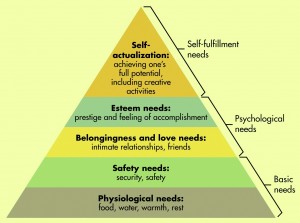“‘This is painful for a liberal to admit,’ admits Nicholas D. Kristof, a Times columnist… ‘but conservatives have a point when they suggest that America’s safety net can sometimes entangle people in a soul-crushing dependency. Our poverty programs do rescue many people, but other times they backfire.’ Do tell.”
by Bill Murchison
 Reason No. 1 not to tremble at the prospect of liberal ascendancy, world without end: Liberalism doesn’t work. At any rate, not the way liberals commonly suppose it’s going to work when they devise enormous taxpayer-funded, government-run programs, minimally connected, if at all, to the realities of human existence.
Reason No. 1 not to tremble at the prospect of liberal ascendancy, world without end: Liberalism doesn’t work. At any rate, not the way liberals commonly suppose it’s going to work when they devise enormous taxpayer-funded, government-run programs, minimally connected, if at all, to the realities of human existence.
An article in the Dec. 9 New York Times, of all places, gleams in the darkness of the present political moment as the Obama administration works to rub away resistance to its vision of an all-encompassing federal government. “This is painful for a liberal to admit,” admits Nicholas D. Kristof, a Times columnist who, oddly, doesn’t see his job as requiring regular trashing of conservatives, “but conservatives have a point when they suggest that America’s safety net can sometimes entangle people in a soul-crushing dependency. Our poverty programs do rescue many people, but other times they backfire.” Do tell. Kristof’s careful examination of anti-poverty programs in Appalachia presents a viewpoint far more nuanced than, say, a Barack Obama speech urging the overhaul of capitalism. He finds that giving people too much free money for too long can create disincentives to live non-dependent lives. He talks about parents who pull illiterate kids out of literacy programs to avoid forfeiting a $698 monthly Supplement Security Income check meant to “help” the intellectually disabled.
Kristof (unlike various think tank and media figures) notes the complexity of the poverty issue. Part of that complexity, he reports with amazing realism (notwithstanding a well-earned personal reputation for realism), consists in the seductions of money.
Kristof understands marriage as “one of the best forces to blunt poverty. In married households, only one child in 10 grows up in poverty, while almost half do in single-mother households. He sees intellectual disability as a category unrealistically enlarged: presently covering “a full 8 percent of all low-income children,” at an annual taxpayer cost of $9 billion. “Those kids,” he says, “may never recover: a 2009 study found that nearly two-thirds of these children make the transition at age 18 into S.S.I. for the adult disabled. They may never hold a job in their entire lives and are condemned to a life of poverty on the dole — and that’s the outcome of a program intended to fight poverty.”
Better, he continues, to work at creating environments favorable to helping welfare clients stand on their own feet. He praises the efforts of the aid group Save the Children, whose Appalachia staff visits “at-risk moms,” helping “nurture the skills they need in the world’s toughest job: parenting.”
He notes a growing body of research suggesting that “the most effective strategy is to work early on children and education, and to try to encourage and sustain marriage.” As in — Kristof didn’t say this; I’m saying it — ye olden tyme, before the welfare lobby conspired with Congress to make welfare the solution of solutions to every human plight.
Kristof’s insight, it is fair to note, has major antecedents. Charles Murray, in “Losing Ground,” was first to make in sustained fashion the point that welfare, by fostering dependency, undermines social stability. Last January, Murray followed up, in “Coming Apart: The State of White America, 1920-2010,” with chilling confirmation that a “great divide” exists between new classes, upper and lower.
“Changes in social policy during the 1960s,” he writes, “made it economically more feasible to have a child without having a husband if you were a woman or to get along without a job if you were a man…”
The old social norms have broken down. Who’s to reconstruct them now? Conservatives? By themselves? What about conservatives, joined by liberals such as Kristof — eyes on both sides of the philosophical spectrum bulging with horrified recognition of harm inflicted in the name of salvation.
Conservatives can do business with liberals who, so to speak, get it — unlike the hierarchs of the new/old administration in Washington, where denial of plain facts seems to many the plainest proof of virtue. For now.
~
Bill Murchison, the former senior columns writer for The Dallas Morning News, is author of There’s More to Life Than Politics. This article first ran at Townhall.com on December 11, 2012.